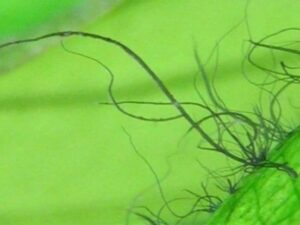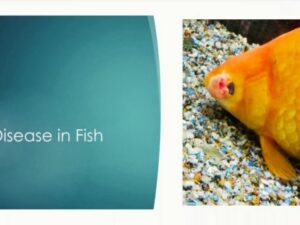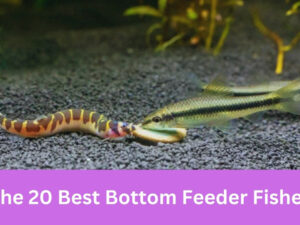The Discus Fish is a popular freshwater aquarium fish known for its beautiful appearance and calm demeanor. It is a member of the Cichlidae family and originates from the Amazon river basin in South America. Discus are typically 4-8 inches in size and can live 10-15 years in captivity with proper care.
They are omnivores and require a diet of both plants and animals. Discus are intelligent and peaceful fish but can be shy around humans. Discus Fish are a popular choice for aquariums. They are beautiful fish that are easy to care for.
This article will provide you with some basic information about Discus Fish. In this article, we will learn about complete care. If you are thinking about adding Discus Fish to your tank, there are a few things that you should know.
Table of Contents
- Species Summary
- Discus Fish Care Guide
- Discus Fish Tank Size
- Discus Fish Tank Mates
- Discus Fish Tank Region
- Tank Decorations
- Heater
- Filter
- Lighting
- Placement
- Water changes
- Gravel Vacuuming
- Algae Scraping
- Substrate
- Water pH level
- Water hardness
- Water Temperature
- Cleaning The Tank
- Ammonia levels
- Nitrite levels
- Oxygen Levels
- Protein Skimmer
- Maintenance
- Testing The Water
- Discus Fish Food & Diet
- Discus Fish Diet Foods To Avoid
- Feeding The Fry
- What About Freshwater Aquarium Plants?
- Potential Fish Diseases
- Preventing Fish Diseases
- Treatment And Medications For Diseases
- Advantages Of Having Discus Fish In Your Tank
- Disadvantages Of Having Discus Fish In Your Tank
- Conclusion
Species Summary
| Scientific Name: | Symphysodon aequifasciatus |
| Common Names: | Discus Fish, pompadour fish, king of the aquarium |
| Distribution: | Amazon river basin, South America |
| Size: | 4.6–8 inches |
| Life expectancy: | 10–15 years |
| Diet: | Omnivore |
| Temperament: | Peaceful |
| Minimum tank size: | 10 gallons per fish |
| Temperature: | 82°–88°F (28–31°C) |
| pH: | 6.0–7.0 |
| Hardness: | Soft water, 2–8 dGH |
| Care Level: | Difficult |
| Breeding: | Mouthbrooders |
Discus Fish originate from the Amazon river basin in South America. They are found in the tropical and subtropical regions of Brazil, Peru, Colombia, and Ecuador.
In the wild, Discus Fish live in slow-moving waters with lots of vegetation. They prefer warm water. In captivity, They can be found in aquariums worldwide.
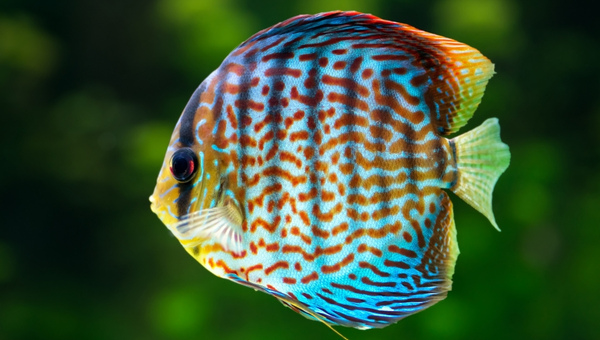
Discus is one of the most beautiful freshwater fish available for aquariums. They have a round body shape, and their fins are often brightly colored. The most common colors are blue, green, and brown.
They are peaceful fish that typically gets along well with other fish in the aquarium. However, they can be shy around humans and do their best in a quiet environment. Discus are typically 4 to 8 inches in size but can grow up to 12 inches.
Discus Fish Lifespan
Live in captivity: Discus Fish have a lifespan of 10 to 15 years in captivity and in the wild. They require proper care and a good diet to stay healthy and live longer.
Discus Fish Appearance
Discus Fish are beautiful freshwater fish that are popular in aquariums. They have a round body shape, and their fins are often brightly colored. The most common colors of Discus Fish are blue, green, and brown. Their main predators are other fish, birds, and mammals.
Discus Fish are known to shed their skin regularly to remove parasites. They will often rub their body against surfaces in the aquarium to help with the shedding process.
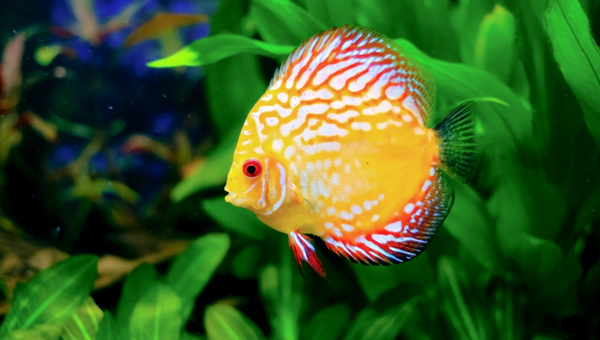
Their unique body patterning allows them to camouflage themselves in their natural environment. The patterns on their body can vary depending on the specific species of discus.
Discus Fish Size And Growth Rate
Discus Fish are typically 4-8 inches in size but can grow up to 12 inches. They have a growth rate of 1-2 inches per month. They reach sexual maturity at around 6-12 months old.
Discus Fish Breeding And Reproduction
Discus Fish are mouthbrooders, meaning the female will carry the eggs and fry them in her mouth until they are ready to hatch. The fry is then released into the aquarium.
It is difficult to breed in captivity. They require a large tank, good water quality, and a varied diet. They are also sensitive to changes in their environment.
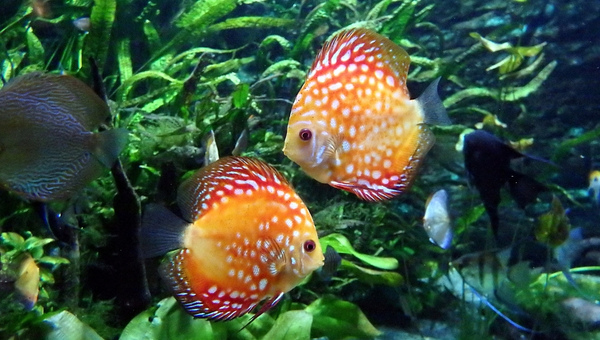
If you are interested in breeding, it is essential to research the specific species that you want to breed. Each species has different requirements for breeding. They are typically compatible with other peaceful fish.
However, they can be shy around humans and do their best in a quiet environment. The gestation period is around 28 days. Pregnancy symptoms in Discus Fish include a round belly and increased appetite.
Do They Make Good Pets?
Discus Fish are popular freshwater aquarium fish. They are known for their beautiful colors and unique body patterns. They are intelligent and can be trained to do tricks. However, they are not easy to care for and do their best in a quiet environment.
If you are considering a Discus Fish as a pet, research the species you are interested in and their specific care requirements.
Discus Fish Behaviour And Temperament
Discus Fish are naturally shy and do their best in a quiet environment. They are not suitable for community tanks. They are peaceful fish and typically get along with other peaceful fish. However, they can be aggressive toward each other if they are not the same size.
Providing plenty of hiding places in the aquarium is essential. They are intelligent and can be trained to do tricks. They are also known for their beautiful colors and patterns.
Also, check Rosy Barb 101: Care, Species, Appearance, Tankmates, Habitat & All
How do you promote breeding?
Discus Fish need a large tank, good water quality, and a varied diet to promote breeding. They are also sensitive to changes in their environment. If you are interested in breeding Discus Fish, it is essential to research the specific species that you want to breed.
Each species has different requirements for breeding. Discus Fish typically lay eggs that the male fertilizes. The female will then carry the eggs and fry them in her mouth until they are ready to hatch. The fry is released into the aquarium.
Discus Fish Care Guide
Here, we will share about the care for Discus Fish.
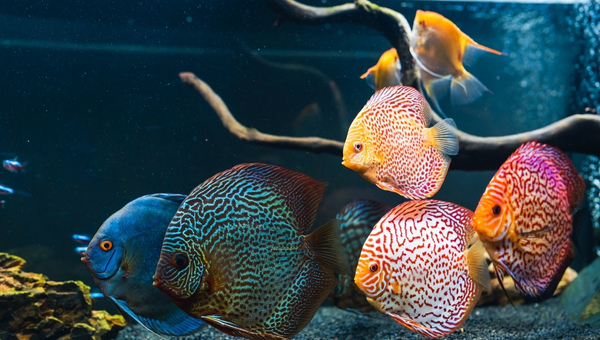
Discus Fish Tank Size
Discus Fish require a large tank. A minimum tank size of 10 gallons is recommended for each fish. However, a larger tank is necessary if you plan on keeping more than one fish.
Discus Fish Tank Mates
Discus Fish are typically compatible with other peaceful fish. However, they can be shy around humans and do their best in a quiet environment. The following fish are some good tank mates for Discus Fish:
Discus Fish Tank Region
Discus Fish are typically found in the middle to upper regions of the tank.
Tank Decorations
Discus Fish require plenty of hiding places in their tank. Driftwood, rocks, and plants are all good choices for tank decorations.
Heater
Discus Fish require a heater in their tank. The ideal water temperature for Discus Fish should be maintained with the help of a heater.
The suggested heaters are:
- Aqueon Submersible Aquarium Heater
- Fluval E Series Heater
- Hydro Plus Submersible Aquarium Heater
Filter
Discus Fish require a filter in their tank.
The following filters are some excellent choices for Discus Fish tanks:
- Aqueon QuietFlow Internal Power Filter
- Fluval Canister Filter
- Marineland Penguin Power Filter
Lighting
Discus Fish do not require special lighting. However, if you want to keep live plants in the tank, you must provide a light source for the plants.
The following lights are some excellent choices for a Discus Fish tank:
- Aqueon LED Aquarium Light
- Fluval Sea EVO Marine Aquarium Kit
- Marineland Reef Capable LED Lighting System
Placement
Discus Fish tanks should be placed in a quiet area away from direct sunlight.
Also, check Cardinal Sulawesi Shrimp 101: Care Guide & Breeding Guide
Water changes
Discus Fish require weekly water changes. Removing all of the waste from the tank each week is essential.
Gravel Vacuuming
Discus Fish tanks should be gravel vacuumed regularly. This will help to remove any waste that has accumulated in the gravel.
Algae Scraping
Discus Fish tanks may develop algae. It is essential to scrape the algae off the glass and decorations regularly.
The following are some excellent choices for algae scrapers:
- Aqueon Algae Scraper
- Fluval Edge Algae Scraper
- Marineland Algae Magnet Cleaner
Substrate
Discus Fish do not require a particular substrate. However, some aquarists use sand or gravel as a substrate in their tanks.
The following are some excellent choices for substrates:
- Aqueon Aquarium Sand
- Fluval Aquarium Gravel
- Marineland Reef Sand
Check Bamboo Shrimp Care Guide, Appearance, Size, Diet, & All
Water pH level
The ideal pH level for Discus Fish is 6.0 to 7.0.
Water hardness
Discus Fish prefer soft water. The ideal water hardness for Discus Fish is 2 to 8 dGH.
Water Temperature
The ideal water temperature for Discus Fish is 82° to 88°Fahrenheit.
Cleaning The Tank
Discus Fish tanks should be cleaned regularly. Removing all of the waste from the tank each week is essential.
The following are some excellent choices for cleaners:
- Aqueon Aquarium Cleaner Kit
- Fluval Edge Glass Cleaner
- Marineland Magnavore Glass Cleaner
Ammonia levels
Discus Fish are sensitive to high levels of ammonia. It is essential to keep the ammonia levels in the tank low. The suggested levels are 0.25 ppm or less. High levels of ammonia can cause health problems for Discus Fish.
Nitrite levels
Discus Fish are sensitive to high levels of nitrite. It is essential to keep the nitrite levels in the tank low. The suggested levels are 0.50 ppm or less. High levels of nitrite can cause health problems for Discus Fish.
Oxygen Levels
Discus Fish require high levels of oxygen in their tank. The suggested levels are 5 ppm or more.
The following are some excellent choices for oxygenated water:
- Aqueon Aquarium Water Conditioner
- Fluval Aqua Plus Water Conditioner
- Marineland Double-Strength Reef Crystals
You may also check Black Ghost Knife Fish 101: Best Detailed Guide & More
Protein Skimmer
Discus Fish tanks may benefit from the use of a protein skimmer. A protein skimmer will help to remove waste from the water.
The following are some excellent choices for protein skimmers:
- Aqueon Protein Skimmer
- Fluval Sea PS2 Protein Skimmer
- Marineland Aqua-C Remora Protein Skimmer
Maintenance
Discus Fish tanks require regular maintenance. Removing all of the waste from the tank each week is essential.
The following are some excellent choices for cleaners:
- Aqueon Aquarium Cleaner Kit
- Fluval Edge Glass Cleaner
- Marineland Magnavore Glass Cleaner
Testing The Water
Discus Fish are sensitive to high levels of ammonia and nitrite. It is essential to test the water regularly to ensure the levels are safe for the fish.
The following are some excellent choices for water testers:
- Aqueon Ammonia Test Kit
- Fluval Nitrate Test Kit
- Marineland Nitrate Test Kit
Also, check Red Devil Cichlid 101: Best Detailed Care Guide
Discus Fish Food & Diet
Discus Fish are omnivores whose diet consists of plant and animal matter. In the wild, they eat various foods, including insects, crustaceans, algae, and plants. In captivity, they can be fed various foods such as pellets, flakes, live food, and frozen food.
It is essential to provide a varied diet for Discus Fish. This will ensure they get all the nutrients needed to stay healthy.
A good diet for Discus Fish should include the following:
- Pellets or flakes
- Live food such as brine shrimp or bloodworms
- Frozen food such as mysis shrimp or krill
- Plant matter such as algae or spinach
Discus Fish should be fed two to three times a day. They should be given enough food that they can eat in two minutes.
Discus Fish Diet Foods To Avoid
Some foods should be avoided when feeding Discus Fish. These foods can cause health problems for the fish.
Some of the foods to avoid include:
- Bread
- Chips
- Popcorn
- Fruit
- Ice cream
- Candy
- Cake
- Cookies
Feeding The Fry
After the fry is released, they must be fed small live foods such as brine shrimp or micro worms. As they grow, you can start to feed them chopped-up pieces of fish or frozen foods. It is essential to provide a variety of foods to ensure that the fry grows and develops appropriately.
What About Freshwater Aquarium Plants?
Many people choose to add plants to their freshwater aquariums. Plants can provide a natural environment for fish, and they can help to keep the water clean. However, not all plants are suitable for all aquariums.
Some plants that are safe for Discus Fish tanks include:
It is essential to research the plants that you are considering adding to your aquarium. Some plants can harm fish if they are not cared for properly.
Check Cardinal Sulawesi Shrimp 101: Care Guide & Breeding Guide
Potential Fish Diseases
There are a variety of diseases that can affect Discus Fish.
Some of the more common diseases include:
- Neon tetra disease: This disease is caused by a virus, and it is deadly. Symptoms include lethargy, loss of appetite, and white spots on the body.
- Hole in the head disease: This disease is caused by a parasite, and it can be deadly. Symptoms include lethargy, loss of appetite, and white spots on the body.
- Red pest: This disease is caused by bacteria and can be deadly. Symptoms include red patches on the body, lethargy, and loss of appetite.
- Velvet: This disease is caused by a parasite and can be deadly. Symptoms include lethargy, loss of appetite, and white spots on the body.
- Dropsy: This disease is caused by bacteria and can be deadly. Symptoms include swollen abdomen, lethargy, and loss of appetite.
- Hexamita: This disease is caused by protozoa and can be deadly. Symptoms include lethargy, loss of appetite, and white spots on the body.
- Columnaris: This disease is caused by bacteria and can be deadly. Symptoms include white patches on the body, lethargy, and loss of appetite.
- Costia: This disease is caused by a parasite and can be deadly. Symptoms include lethargy, loss of appetite, and white spots on the body.
- Aeromonas: This disease is caused by bacteria and can be deadly. Symptoms include red patches on the body, lethargy, and loss of appetite.
- Tetrahymena: This disease is caused by protozoa and can be deadly. Symptoms include white spots on the body, lethargy, and loss of appetite.
They are susceptible to a variety of diseases. It is essential to learn about the signs and symptoms of these diseases to identify them if they occur quickly. If you think your fish might be sick, it is essential to take them to a veterinarian specializing in fish.
Preventing Fish Diseases
There are a few things that you can do to prevent fish diseases:
- Quarantine new fish before adding them to your tank.
- Test the water regularly.
- Keep your aquarium clean.
- Do not overfeed your fish.
- Do not add plants or other fish to your tank unless you are sure they are safe.
Also, check Clown Loach Care: Appearance, Tank Mates, Lifespan, Breeding & All
Treatment And Medications For Diseases
If your fish is sick, you must seek treatment from a veterinarian specializing in fish. There are a variety of medications that can be used to treat fish diseases.
Some of the more common medications include:
- Tetracycline
- Nitrofurazone
- Metronidazole
- Levamisole
- Kanamycin
- Furazolidone
- Chloramphenicol
- Ampicillin
- Ciprofloxacin
- Erythromycin
Advantages Of Having Discus Fish In Your Tank
- Beautiful: They are some of the most beautiful fish in the world. They come in a variety of colors and patterns.
- Peaceful: They are generally peaceful fish. They can get along with other species of fish.
- Easy to Care For: They are not difficult to care for if you have the proper setup. They do not require a lot of maintenance.
- Fun to Watch: They are fun to watch. They are very active, and they interact with their environment.
- Educational: They can be educational for children. They can learn about the different species of fish and their habitats.
- Suitable For Your Tank: This Fish is good for your tank. They help to keep it clean, and they provide oxygenation.
- Accessible to Breed: They are easy to breed. If you have a good setup, you can successfully breed them.
- Excellent Parents: They make excellent parents. They care for their young, and they protect them from predators.
- Good For the Beginner: This is good for the beginner. They are not difficult to care for and are easy to find in pet stores.
- Fun to Collect: They are fun to collect. There are a variety of colors and patterns to choose from.
Also, check Pregnant Guppy Fish: A Complete Detailed Care Guide
Disadvantages Of Having Discus Fish In Your Tank
- Expensive: They can be expensive. They are not always easy to find and can be challenging to care for.
- Need a Large Tank: They need a large tank. They grow to be about 8 inches in size, and they require a lot of space.
- Sensitive to Water Conditions: They are sensitive to water conditions. They require clean water and do not do well in polluted water.
- Can Be Aggressive: They can be aggressive. They may fight with other fish in the tank.
- May Not Survive in captivity: They may not survive in captivity. They are wild fish and may not adapt to life in an aquarium.
- Need Live Food: They need live food. They will not eat pellets or flakes.
- Can Be Difficult to Find: They can be challenging to find. They are not always available in pet stores.
- Can Be Difficult to Breed: They can be challenging to breed. They are wild fish, and they may not spawn in captivity.
- Can Be Difficult to Care For: They can be difficult. They require much attention and must be kept in a clean tank.
Conclusion
Discus Fish are beautiful fish that can be fun to watch and collect. However, they are challenging to care for and require much attention. If you consider keeping Discus Fish, ensure you are prepared for the challenge.
Discus Fish are beautiful, peaceful fish that makes a great addition to any aquarium. They require a large tank, good water quality, and a varied diet. They are also sensitive to changes in their environment.
If you are interested in keeping, it is essential to research the specific species that you want to keep. Each species has different requirements for care. Discus Fish typically lay eggs that the male fertilizes.

